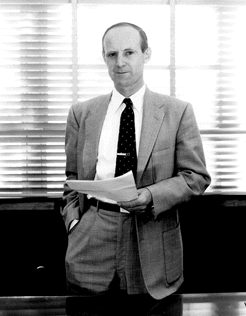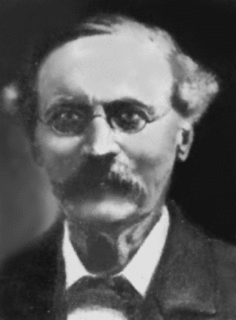Related Research Articles
Forest & Bird, also known by its formal name as the Royal Forest and Bird Protection Society of New Zealand, is an environmental organisation specialising in the protection and conservation of New Zealand's indigenous flora and fauna and unique wild places and natural ecosystems. Forest & Bird consists of 47 branches located in urban and rural centres throughout New Zealand. Branches are actively engaged in conservation projects and advocacy on a community, regional and national basis. Forest & Bird has offices and staff located in Auckland, Christchurch, Wellington, Nelson and Dunedin. Forest & Bird publishes a quarterly magazine Forest & Bird, one of New Zealand's definitive natural history and conservation publications.

The Rutherford Medal is the most prestigious award offered by the Royal Society of New Zealand, consisting of a medal and prize of $100,000. It is awarded at the request of the New Zealand Government to recognize exceptional contributions to the advancement and promotion of public awareness, knowledge and understanding in addition to eminent research or technological practice by a person or group in any field of science, mathematics, social science, or technology. It is funded by the New Zealand government and awarded annually.
Sir Charles Alexander Fleming was a New Zealand geologist, ornithologist, molluscan palaeontologist and environmentalist. He spent the last twenty years of his life studying the evolution and systematics of New Zealand cicadas.

The Royal Society Te Apārangi is an independent, statutory not-for-profit body in New Zealand providing funding and policy advice in the fields of sciences and the humanities.
Dame Alice Joan Metge is a New Zealand social anthropologist, educator, lecturer and writer.
The Hector Medal, formerly known as the Hector Memorial Medal, is a science award given by the Royal Society Te Apārangi in memory of Sir James Hector to researchers working in New Zealand. It is awarded annually in rotation for different sciences – currently there are three: chemical sciences; physical sciences; mathematical and information sciences. It is given to a researcher who "has undertaken work of great scientific or technological merit and has made an outstanding contribution to the advancement of the particular branch of science." It was previously rotated through more fields of science – in 1918 they were: botany, chemistry, ethnology, geology, physics, zoology. For a few years it was awarded biennially – it was not awarded in 2000, 2002 or 2004.

Siouxsie Wiles is a British microbiologist and science communicator. Her specialist areas are infectious diseases and bioluminescence. She is based in New Zealand.

Helen Hannah Rigg Hughes is a New Zealand botanist. She served as New Zealand's first Parliamentary Commissioner for the Environment from 1987 to 1996.

Wendy Alison Nelson is a New Zealand marine scientist and world expert in phycology. She is New Zealand's leading authority on seaweeds. Nelson is particularly interested in the biosystematics of seaweeds/macroalgae of New Zealand, with research on floristics, evolution and phylogeny, as well as ecology, and life history studies of marine algae. Recently she has worked on the systematics and biology of red algae including coralline algae, distribution and diversity of seaweeds in harbours and soft sediment habitats, and seaweeds of the Ross Sea and Balleny Islands.
Ann Brower is an environmental geographer from New Zealand. A survivor of the 2011 Christchurch earthquake, she successfully lobbied for a law change to the Building Act, which was passed in 2016 as the Brower Amendment. Brower was promoted to full professor at the University of Canterbury in December 2021. In 2022 she won the Charles Fleming Award for Environmental Achievement.

Brian Peter John Molloy was a New Zealand plant ecologist, conservationist, and rugby union player.
Elisabeth Slooten is a New Zealand zoology academic. She is currently a full professor at the University of Otago.

Kathleen Ann Campbell is an American-born New Zealand geology and astrobiology academic. She is currently a full professor at the University of Auckland. Her work is broadly centred in the topic of paleoecology and how ancient organisms interacted with their environment and whether they were capable of surviving under extremely hard conditions. Much of her research carries wide-ranged associations with questions about the origin of life and the possibility of life on Mars. She graduated from the University of Southern California and she is currently a full professor at the University of Auckland.

Jadranka Travaš-Sejdić is a New Zealand academic, and as of 2018 is a professor at the University of Auckland.

Rangiānehu 'Rangi' Mātāmua is a New Zealand indigenous studies and Māori cultural astronomy academic and is Professor of Mātauranga Māori at Massey University. He is Māori, of Tūhoe descent. He is the first Māori to win a Prime Minister's Science Prize, is a Fellow of the Royal Society Te Apārangi, and is the chief advisor to the New Zealand Government on the public holiday Matariki.

The Pickering Medal is awarded annually by the Royal Society Te Apārangi to a person or team "who, while in New Zealand, has through design, development or invention performed innovative work the results of which have been significant in their influence and recognition both nationally and internationally, or which have led to significant commercial success".

The Hutton Medal is awarded annually by the Royal Society Te Apārangi to a researcher who, working within New Zealand, has significantly advanced understanding through work of outstanding scientific or technological merit.

Caroline Mary Saunders is a New Zealand academic, and as of 2020 is a Distinguished Professor at Lincoln University, specialising in environmental economics. She is a Fellow of the Royal Society Te Apārangi.
Richard William McDowell is a New Zealand soil scientist and former first-class cricketer. A professor at Lincoln University, McDowell was awarded the Hutton Medal of the Royal Society Te Apārangi in 2021.

SallyAnn Harbison is a New Zealand forensic scientist. She leads the forensic biology team at the Institute of Environmental Science and Research, and is an associate professor at the University of Auckland. Harbison was appointed a Member of the New Zealand Order of Merit in 2021 and in the same year was elected as a Fellow of the Royal Society Te Apārangi.
References
- ↑ "Fleming Award". Royal Society of New Zealand. Retrieved 20 March 2016.
- ↑ "Background of the Award « Fleming Award". Royal Society of New Zealand. Retrieved 19 March 2016.
- ↑ "Dr Brian Molloy". QEII National Trust. Archived from the original on 31 March 2016. Retrieved 20 March 2016.
- ↑ "Awards reward scientists with an eye to the future". Scoop. 13 November 2014. Retrieved 20 March 2016.
- ↑ "Recipients". Royal Society Te Apārangi. Retrieved 22 November 2022.
- ↑ "Research Honours Aotearoa winners celebrated in Te Whanganui-a-Tara". Royal Society Te Apārangi. Retrieved 22 November 2022.